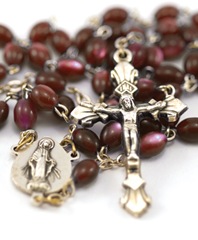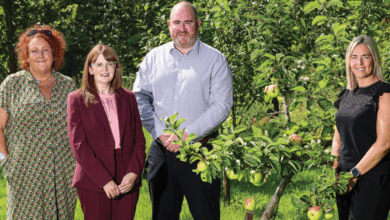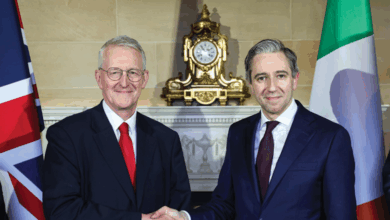Catholic grammars to go in education shake-up
 In a move likely to face opposition from parents and teachers, the policy makers for Northern Ireland’s Catholic schools have launched a consultation detailing various options for a complete remodelling of the school estate.
In a move likely to face opposition from parents and teachers, the policy makers for Northern Ireland’s Catholic schools have launched a consultation detailing various options for a complete remodelling of the school estate.
Some of the province’s Catholic grammar schools could lose this status and become comprehensive or co-educational, depending on the outcome of a consultation launched by the Northern Ireland Commission for Catholic Education. NICCE is the body comprising of religious and diocesan trustees who formulate the overall policy for the network of 104 post-primary maintained schools; there are 30 grammar schools and 74 secondary schools. The post-primary review was first announced in 2006 following the passing of the Education Order, which set 2013 as the date for the implementation of the Entitlement Framework, whereby schools will be required to provide 24 subjects pre-16 and 27 subjects thereafter. The consultation entitled ‘Catholic Education for All’ is part of this ongoing review and it outlines ways in which the school estate can be reduced.
Following the Education Minister’s announcement in 2007 that academic selection must end, the NICCE issued a policy statement in March 2009 agreeing that it should be phased out by 2012. However, grammar schools in the maintained, voluntary and controlled sectors have opted to use unregulated tests as a means of determining their intake for the last two years.
Last month Cardinal Séan Brady urged all involved to “move beyond the tired, narrow focus on academic selection and consider the full range of challenges facing post-primary education in Northern Ireland.” However, DUP leader Peter Robinson pledged to ensure academic selection would remain, and suggested that many Catholic parents would send their children to participating schools. There are currently no corresponding consultations taking place on the non-Catholic sector, but options contained in a previous education and library board consultation are being considered by some schools.
The commission has recognised that “significant changes” in government policy, the continuing demographic downturn and financial challenges will “undoubtedly have major implications for their schools.”
The document proposes 16 project groupings for the region’s five catholic dioceses: Armagh, Clogher, Derry, Down and Connor, and Dromore.
The schools in these groupings would be required to work together to investigate various options for collaboration and are instructed to find a “broad consensus of support.”
This support will be difficult to come by judging by the controversy in education since the department stopped regulating the process of academic selection.
Options include the end of single-sex schooling in Newry, where there are currently four grammar schools. Our Lady’s Grammar, Sacred Heart Grammar, St Colman’s College and the Abbey Christian Brothers Grammar would be merged with two non-grammars to form new all-ability schools.
Similarly in County Fermanagh, Mount Lourdes Grammar and St Michael’s College would merge with other secondary schools and create a maximum of three 11-19 schools in Enniskillen, along with one school in rural south east Fermanagh. This would also have a significant impact on the secondary schools in the area.
In the Armagh diocese, one option is to amalgamate St Patrick’s Grammar, St Brigid’s High and St Catherine’s College, in Armagh, Drumcree College in Portadown and St Patrick’s High in Keady to form an 11-19 co-educational school in Keady, two 11-19 single-sex schools in Armagh and an 11-16 co-educational school in Portadown. And in County Londonderry, St Pius X College and St Mary’s Grammar in Magherafelt face a possible merger.
Unsurprisingly, Caitríona Ruane welcomed the consultation saying: “The landscape is changing. We have just had the unregulated test results published by schools and parents have just finished choosing the post-primary school they want for their children this year.
“While it offers a number of possible options in each area, the unifying factor is that Catholic education should no longer regard the selection and rejection of 11 year old children as an acceptable form of education.”





